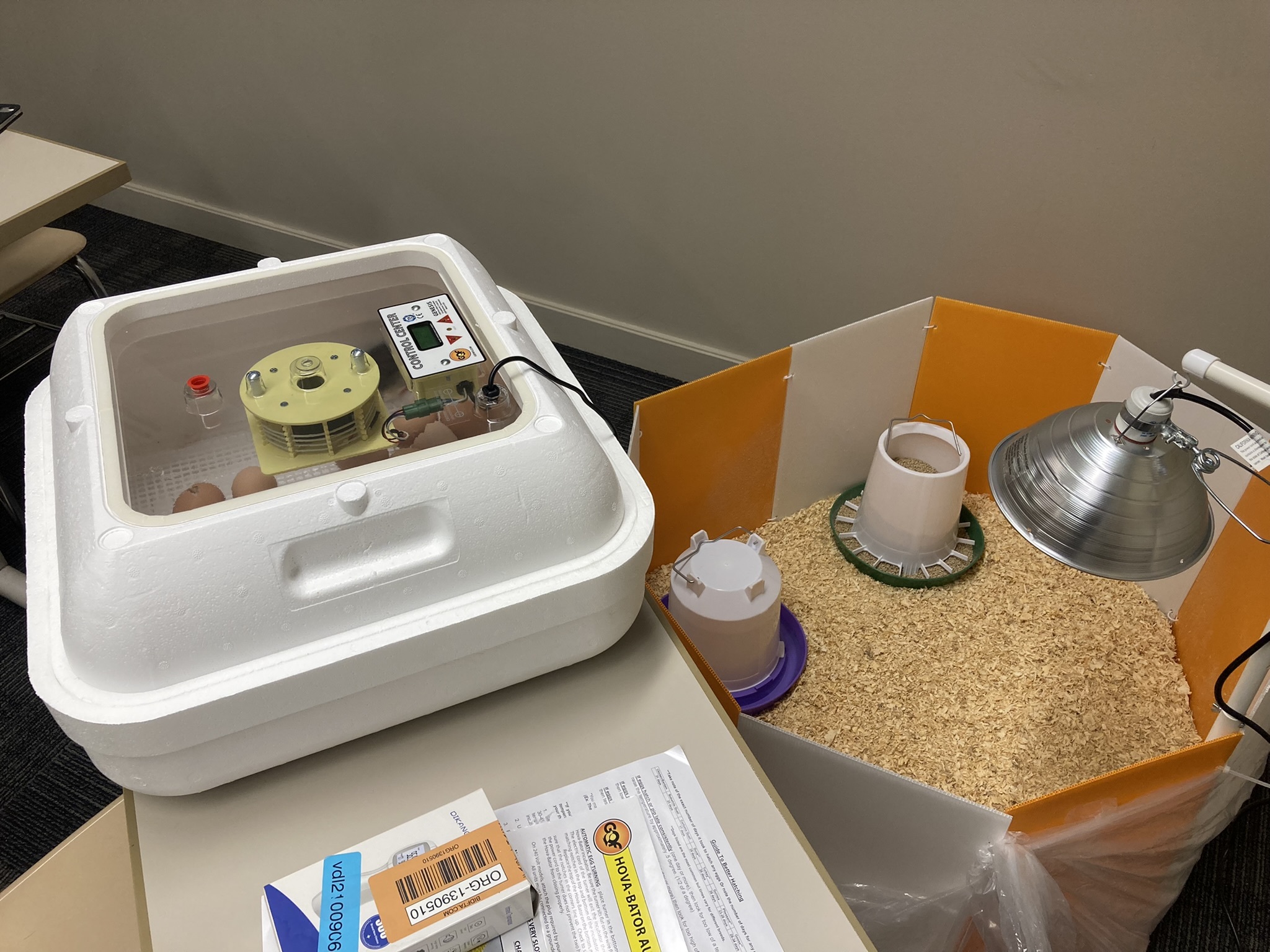A brood of baby chickens, born at Sinclair on the fourth floor of Building 13, recently turned a month old. They were incubated and hatched at the college as part of an animal husbandry class, taken by some of our agriculture students.
From the incubator in which they hatched, these baby chicks moved to a new home, an enclosure under a lamp with a warm, red glow. They took their first steps with the help of faculty and students. Dawn Allen, head of Sinclair’s Agriculture Department and Assistant Dean and Professor of Hospitality, came up with the plan to hatch them here and took care of them over spring break. Since they hatched, students have been observing and learning about them as they grow.
One goal of the Agriculture Department is to encourage urban gardening and farming in the Dayton area. Montgomery County allows residents to keep six hens within county limits as long as they are within an enclosed structure and residents have the proper permits and follow certain rules. Part of Professor Allen’s inspiration to hatch the chickens was to inspire students in the community to become involved in the local food system and show them how simple it can be to do that.
“Urban agriculture is exciting and self-sustaining,” said Allen. Students can learn how to grow food on their own, which is critical in times of instability.
“Agriculture is our baseline in unstable times,” she explained. “Dayton is a food desert. Food banks are great but now we need to go to this next step. How can we have that food on our own and have that stability?”
Allen believes we have lost some of our agricultural skills but it doesn’t take much land to farm. Growing food or raising chickens is possible in more places than some may think it is.
“If you’ve got room for grass, you’ve got room for a garden,” she said. “You can adapt agriculture to what the conditions are.”
Whether it’s one of the Hospitality Club’s many trips abroad or raising animals with classmates, Allen believes fun, interesting, unique experiences are what students remember best from their time at Sinclair. She believes the excitement those get from them carries on into their community and work life. Such experiences are a critical part of their education.
Sinclair’s agriculture program is prepared to grow. Two-year programs in agriculture are rare, and students have the opportunity to transfer to four-year institutions from Sinclair. Dayton has a long agricultural history that has gone hand in hand with its mechanical, scientific, and industrial one. Farming has an intimate connection to technology and programs such as Sinclair’s Unmanned Aerial Systems Precision Agriculture certificate can give small farmers in the Miami Valley the educational edge they need to grow. Demographic trends also have a strong effect on the agricultural industry. As the baby boomer generation that grew up in the 1960s ages, America is going to need more young farmers.
“Baby boomers were our farmers. [As they retire], there are gonna be holes,” said Allen.
Sinclair cooperates with local organizations such as OEFFA, and the Ohio Ecological Food, and Farm Association, to help young farmers get their footing. “In my experience, there is a substantial amount of interest in agriculture amongst young people — the issue, in many cases, is that someone may simply have no idea how to get started,” says Robin Hackett, the OEFFA’s Begin Farming Program Coordinator.
In light of the greater trends in the agricultural industry and its partnerships with programs inside and outside the college, Sinclair’s Agriculture Department – with a little luck, creativity, and hard work – looks to have a bright future.
Carlos Jilson
Reporter

